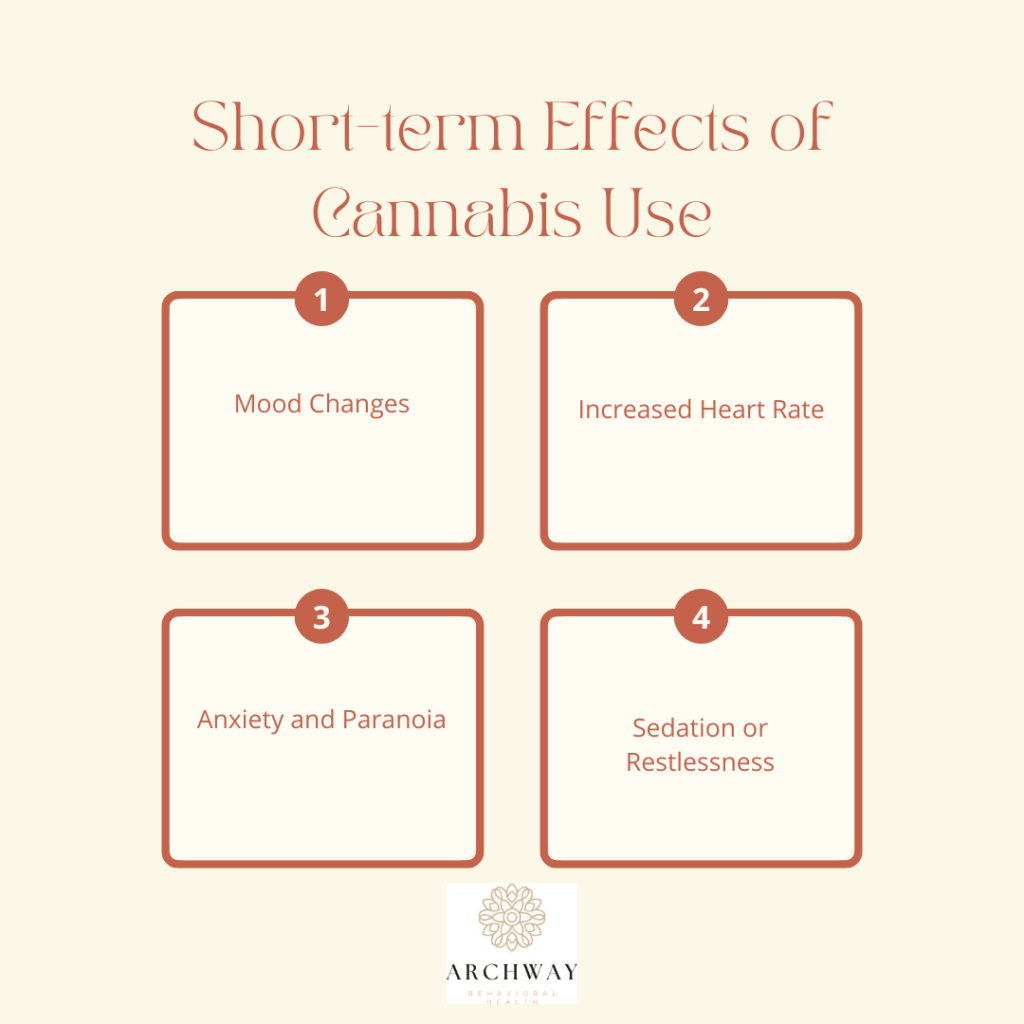Cannabis, commonly known as marijuana, has been a topic of debate in discussions about mental health. As more people use it for various reasons, from recreational enjoyment to medical treatment, questions arise about its effects on mental well-being. Does cannabis use contribute to severe mental disorders? Let’s explore this topic to understand the potential risks and what you can do if you or someone you know is struggling.
Understanding the Impact of Cannabis
Cannabis affects everyone differently, and its impact on mental health can vary based on several factors, including dosage, frequency of use, and individual predispositions. Some studies suggest that cannabis use might be linked to an increased risk of developing mental health issues, particularly in vulnerable individuals.
Cannabis contains compounds known as cannabinoids, with tetrahydrocannabinol (THC) being the most well-known for its psychoactive effects. When consumed, cannabis interacts with the brain’s endocannabinoid system, affecting mood, memory, and perception. While some individuals use cannabis for therapeutic purposes, it can also have adverse effects on mental health, particularly with heavy or prolonged use.
The Link Between Cannabis and Mental Disorders
- Anxiety Disorders: For some, cannabis use can exacerbate or trigger anxiety. It might initially seem to relieve anxiety symptoms, but over time, it can lead to heightened feelings of paranoia and panic. This makes therapy for anxiety disorders a crucial step for those experiencing such symptoms.
- Depression: Cannabis might have a complex relationship with depression. While some users report temporary mood improvement, others might find that cannabis use leads to a worsening of depressive symptoms. Depression therapy can be essential for individuals who notice that their mood has deteriorated with cannabis use.
- Psychosis and Schizophrenia: Cannabis has been linked to a higher risk of psychosis, particularly in those with a family history of mental health disorders. In severe cases, it can trigger or exacerbate conditions like schizophrenia. Those with these symptoms may benefit from specialized mental health treatment services.
- Cognitive Impairment: Long-term cannabis use can lead to cognitive deficits, affecting attention, memory, and executive functioning. These impairments can hinder daily functioning and contribute to mental health challenges.
- Substance Use Disorders: Regular cannabis use can lead to dependence and withdrawal symptoms, which can complicate existing mental health issues. Individuals may turn to cannabis as a coping mechanism, further perpetuating the cycle of dependence and mental health struggles.
Factors Influencing the Relationship
Several factors can influence the extent to which cannabis affects mental health:
- Age of Onset: Starting cannabis use at a young age is associated with a higher risk of developing mental health disorders later in life.
- Frequency and Amount of Use: Heavy and frequent use increases the likelihood of adverse mental health effects.
- Genetic Predisposition: Individuals with a family history of mental illness may be more susceptible to the negative effects of cannabis.
- Pre-existing Conditions: Those with a history of mental health disorders may experience worsening symptoms with cannabis use.
Additional Risks of Cannabis Use
1. Impact on Young Minds
- Adolescents and young adults are particularly vulnerable to the effects of cannabis. The brain continues to develop into the mid-20s, and cannabis use during this critical period can interfere with brain development, potentially leading to long-term cognitive and emotional issues.
2. Interactions with Other Substances
- Cannabis can interact with other substances, including alcohol and prescription medications. This combination can amplify negative mental health effects and increase the risk of substance use disorders.
3. Social and Environmental Factors
- The environment in which cannabis is used—such as stressful or chaotic settings—can also influence its mental health impact. Additionally, social circles that normalize heavy cannabis use may reinforce its consumption, making it harder for individuals to recognize and address their mental health issues.
Seeking Help and Support
If cannabis use is affecting your mental health, it’s important to seek professional help. Here are some options to consider:
- Individual Therapy: One-on-one sessions with a mental health professional can help address specific issues related to cannabis use and mental health.
- Group Therapy Services: Engaging with others who have similar experiences can provide support and insights.
- Intensive Outpatient Program (IOP): An Intensive Outpatient Program offers a flexible treatment schedule for those who need significant support but do not require full-time hospitalization. This can be a good fit for individuals seeking balance between therapy and daily responsibilities.
Seeking Help at Archway Behavioral Health
If you or someone you know is struggling with the mental health effects of cannabis use, it’s essential to seek support. At Archway Behavioral Health, we offer a range of services to address these challenges, including:
- Individual Therapy: 1-on-1 therapy program tailored sessions to explore the underlying issues related to cannabis use and mental health.
- Group Therapy Services: Group therapy offers Supportive environments where individuals can share experiences and learn from one another.
- Cognitive Behavioral Therapy: Cognitive Behavioral Therapy focuses on changing negative thought patterns and behaviors associated with substance use and mental health issues.
- Dialectical Behavior Therapy: Dialectical Behavior Therapy emphasizes emotional regulation and coping skills, helping individuals manage symptoms and reduce reliance on substances.
- Partial Hospitalization Program (PHP): Partial Hospitalization Program structured program providing intensive support while allowing for some independence.
- Intensive Outpatient Program (IOP): Intensive Outpatient Program designed for those who need ongoing support while balancing daily responsibilities.
Conclusion
Cannabis use can potentially lead to or worsen mental health issues, especially in individuals who are already vulnerable or have a predisposition to mental health conditions. It’s important to be mindful of how cannabis affects you and to seek professional help if you notice negative impacts on your mental well-being. Utilizing mental health treatment centers and exploring various mental health treatment services like individual therapy, group therapy services, therapy for anxiety disorders, and depression therapy can help in managing and improving mental health.
Taking proactive steps towards mental health and seeking appropriate treatment can make a significant difference in achieving a balanced and healthy life. If you’re concerned about the effects of cannabis or struggling with mental health issues, don’t hesitate to reach out for support and guidance. If you’re ready to begin your journey to mental well-being, contact Archway Behavioral Health today, call us at (888) 488-4103.
FAQ: Does Cannabis Lead to Severe Mental Disorder?
Can cannabis use lead to mental disorders?
Yes, research indicates that heavy and prolonged cannabis use, especially in adolescents and young adults, can increase the risk of developing mental health disorders, including anxiety, depression, and psychosis.
How does cannabis affect mental health?
Cannabis can disrupt the brain’s normal functioning, leading to cognitive impairments, emotional dysregulation, and exacerbation of existing mental health issues. Its psychoactive component, THC, can induce feelings of anxiety and paranoia in some users.
Is there a link between cannabis and psychosis?
Yes, studies have shown that frequent cannabis use is associated with a higher risk of developing psychotic disorders, particularly in individuals with a family history of mental illness.
Are young people more affected by cannabis use?
Yes, adolescents and young adults are particularly vulnerable to the adverse effects of cannabis. Using cannabis during brain development can lead to long-term cognitive and emotional issues.
Can cannabis use lead to dependence?
Yes, regular cannabis use can lead to dependence and withdrawal symptoms. Individuals may develop a substance use disorder, complicating existing mental health challenges.
What should I do if I or someone I know is struggling with cannabis use?
If you or someone you know is experiencing mental health issues related to cannabis use, it’s important to seek professional help. Archway Behavioral Health offers a range of level of care options tailored to individual needs.
Can therapy help with cannabis-related mental health issues?
Yes, therapy can be effective in addressing the underlying issues related to cannabis use and its impact on mental health. Therapy can help individuals develop coping strategies and reduce reliance on substances.



